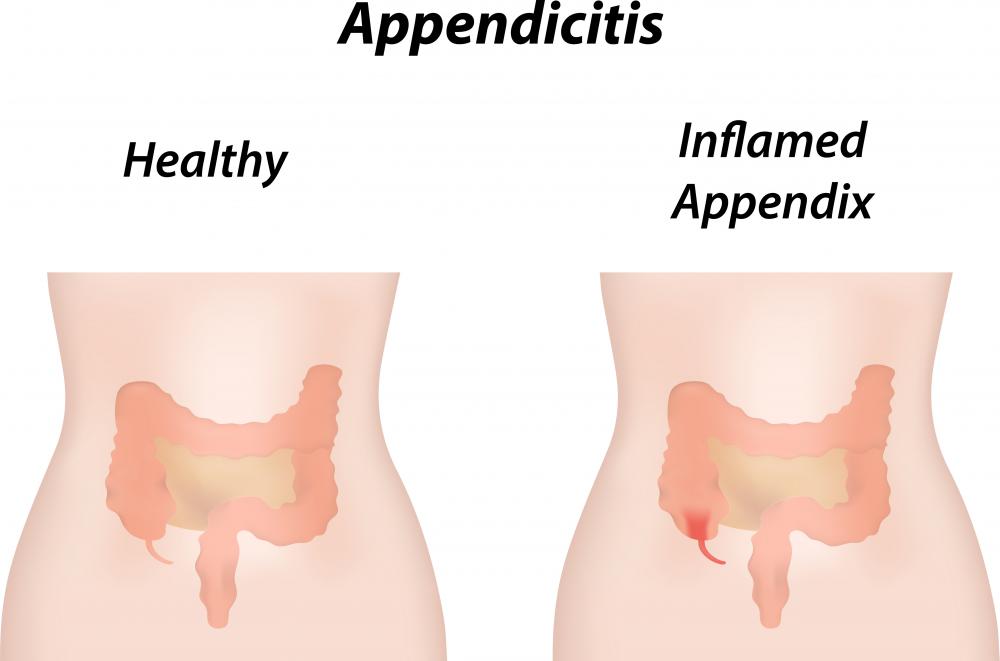At WiseGEEK, we're committed to delivering accurate, trustworthy information. Our expert-authored content is rigorously fact-checked and sourced from credible authorities. Discover how we uphold the highest standards in providing you with reliable knowledge.
What are the Different Types of Appendicitis Treatment?
Appendicitis is an infection of the appendix and is treated quickly with intravenous antibiotics to prevent any spread of the infection and surgery to remove the appendix before it ruptures or becomes perforated. A perforated appendix will leak the infection into the abdominal cavity and may cause secondary peritonitis, an infection of the lining of the abdominal wall. Treatment for a perforated appendix is an appendectomy using open surgery, during which a survey of the abdominal cavity will be performed and any infected tissue will be removed, as well as rigorous intravenous antibiotic therapy. When only a few symptoms are present it is called chronic appendicitis, and the appendicitis treatment in this case is an appendectomy to prevent the possibility of a rupture or is close monitoring for any further signs of infection. In rare situations where surgery is not available or needs to be delayed for health reasons, temporary appendicitis treatment involves an aggressive course of antibiotics and close monitoring of the patient.
Preparation for an appendectomy begins quickly with intravenous antibiotics and fluids and immediately halting all food and drink. General anesthesia can be used if the patient’s stomach is clear but if the stomach is not clear, spinal anesthesia, a more localized numbness delivered through the spine, is used. An appendectomy performed using open surgery uses a 2 to 4 inch (about 5-10 cm) incision to remove the appendix. Laparoscopic appendectomy uses tiny incisions to introduce a camera and surgical tools into the abdomen for the dissection.

If the appendix has ruptured, the appendicitis treatment is urgent to prevent the spread of infection. Antibiotics and fluids will be started, anesthesia will be quickly administered, and an open appendectomy will be performed. Once the appendix has been removed the abdominal cavity will be flushed out to remove any infected tissue or fluid. The cavity will them be surveyed for signs of infection, and any abscesses or fluid fill pockets will be removed. Sometimes a drain is added to divert any fluid from the abdominal cavity during healing.

Chronic appendicitis is treated by either carefully watching the patient for further signs of infection and increasing pain or with an appendectomy. If the appendix looks healthy once the surgery is performed, it will still be removed in hopes of eliminating the symptoms. In rare cases where surgical care is not available or heath issues prevent surgery from being performed, appendicitis treatment is to administer an aggressive course of antibiotics. This treatment is always accompanied by strict monitoring for signs of a ruptured appendix.
AS FEATURED ON:
AS FEATURED ON:
















Discuss this Article
Post your comments